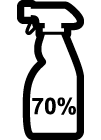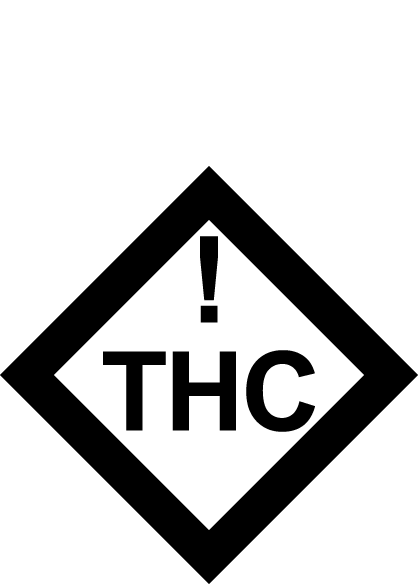Booklet Labels Make Good Legal Sense
IT MAKES GOOD LEGAL SENSE TO PUT AS MUCH INSTRUCTIONAL AND SAFETY INFORMATION ON YOUR PRODUCT AS POSSIBLE.
 You can’t read the news today without coming across another product liability lawsuit clogging up our courts. Every year, the U.S. legal system is flooded with injury lawsuits seeking billions of dollars from companies whose product labeling is targeted for insufficient information. Companies that thought tighter federal regulations in recent years would shield them from this kind of litigation have been sorely mistaken. What companies are finding out the hard way is that federal regulations do not trump state laws.
You can’t read the news today without coming across another product liability lawsuit clogging up our courts. Every year, the U.S. legal system is flooded with injury lawsuits seeking billions of dollars from companies whose product labeling is targeted for insufficient information. Companies that thought tighter federal regulations in recent years would shield them from this kind of litigation have been sorely mistaken. What companies are finding out the hard way is that federal regulations do not trump state laws.
A high-profile case (Wyeth v. Levine) that caught my attention last year involved the pharmaceutical industry. In this pharma case, the Supreme Court ruled that state juries may award damages for harm even though their manufacturers had satisfied federal regulations for labeling. What struck me was that the ruling by the Supreme Court had significant implications for other industries, both consumer-focused as well as industrial, and placed these damaging product liability lawsuits squarely in state courts, where juries are generally sympathetic to claims against companies.
Not surprisingly, lawyers are in a feeding frenzy to file these lawsuits in state courts. As difficult as it might be to understand, under the laws of most states, a product is considered defective due to inadequate warning or instruction. Or, to put it another way, even if the product has been properly designed and manufactured, if the manufacturer did not properly provide warnings to the end user, then a product liability lawsuit can be filed.
Think you are not the likely target of a product liability lawsuit? Think again. Currently, there are more than 1 million lawyers in the United States, which is about 1 lawyer for every 300 Americans. It’s not surprising that the number of lawsuits filed over the last decade has soared – with no end in sight. Litigation has exploded in the area of product liability lawsuits as have the numbers and kinds of plaintiffs who can bring these claims to court. The situation will only get worse as the number of lawyers continues to grow. Last year, more than 60,000 aspiring lawyers took the Law School Admission Test, the most ever.
 “There are more than 1 million lawyers in the United States which is about 1 lawyer for every 300 Americans. 60,000 aspiring lawyers took the Law School Admission Test in 2009, the most ever.”
“There are more than 1 million lawyers in the United States which is about 1 lawyer for every 300 Americans. 60,000 aspiring lawyers took the Law School Admission Test in 2009, the most ever.”
The bottom line is that the more information you provide in your labels the better off your company will be in helping to ward off these kinds of lawsuits. It makes good, sound legal sense to affix as much instructional and safety information to your product as possible. Aside from the required information, you need to ask yourself what product labeling you are missing.
Although this is the “digital age”, an electronic label is not enough, not nearly the complete labeling solution you should be striving for. Going paperless limits the access others have to the information in your product labeling. For instance, there are still many in our society who don’t have smart phones, access to computers and cell service, or might be from an older generation that is not “digitally” inclined. To avoid limiting the effectiveness of your labeling, you should consider putting “hard copy” in the form of a booklet label on your product. Booklet labels from JH Bertrand are designed to fit any volume of copy and are attached directly to your product, providing the essential information to make your product safer and easier to use.
When it comes to product labeling, less is not more. Don’t put your company at risk legally with inadequate labeling. Of course, ensuring that a wealth of information is included in your labels doesn’t guarantee your company will be able to avoid litigation altogether. Lawsuits, unfortunately, are all too common and have become a fact of life in today’s business environment. However, you can reduce the legal risks and give your company a leg up should you face a claim filed against you in court.
We, at JH Bertrand, are ready to customize a product labeling solution that fits your specific business needs.
(The article above is our opinion at JH Bertrand and should not be construed as legal advice.)









